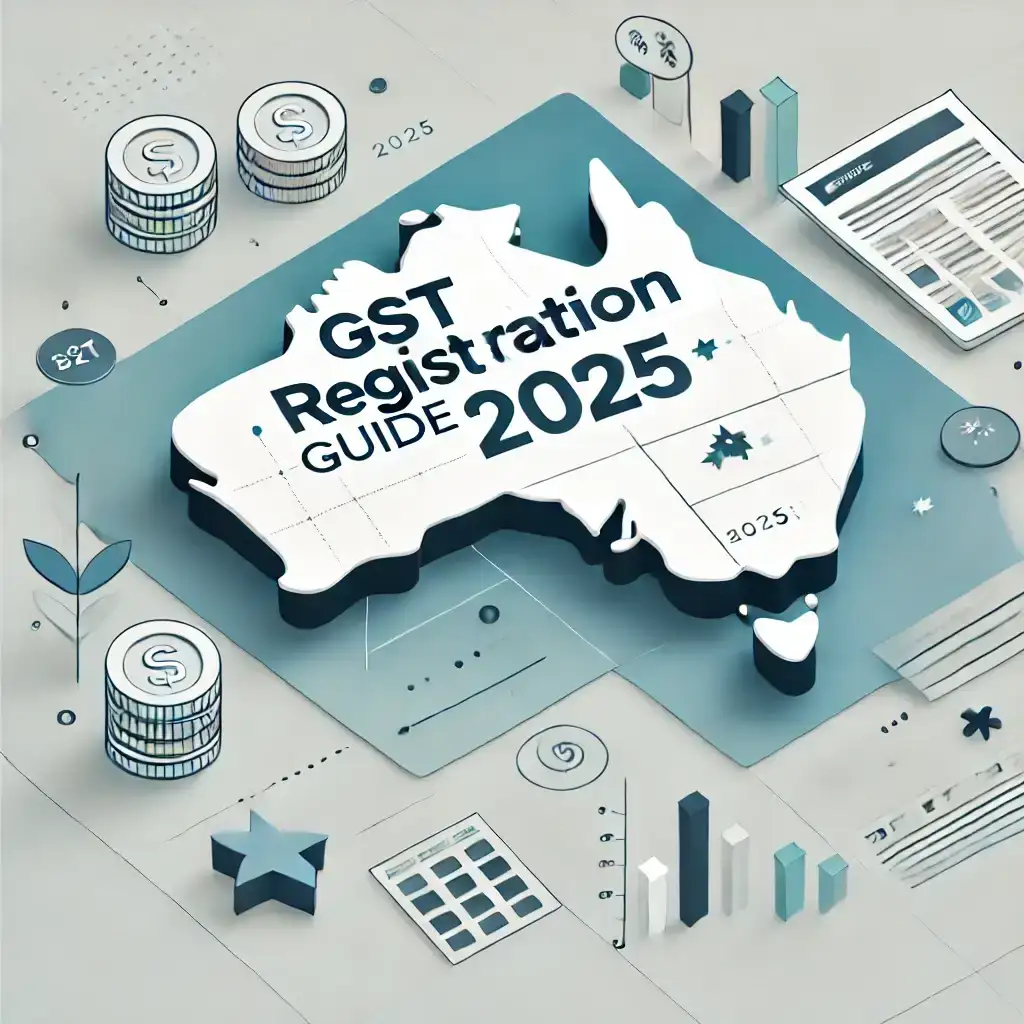Complete Guide to GST Registration in Australia for 2025
Oct. 16, 2024
Explore the intricacies of GST registration in Australia with this comprehensive guide. Learn about the requirements, thresholds, and processes tailored for businesses, freelancers, ride-share drivers, and e-commerce entrepreneurs. Ensure your business remains compliant with Australian GST regulations.

Register in Just 5 Minutes Today!
Register your ABN nowLast update: Dec. 27, 2024
"Trust ABN Registrar, a registered BAS Agent offering fast, secure, and fully compliant ABN registration services, to deliver an error-free experience that eliminates the common pitfalls many encounter, ensuring you receive expert, step-by-step support throughout the process."
What is GST in Australia?
The Goods and Services Tax (GST) is a 10% tax on most goods, services, and other items sold or consumed in Australia. It's integral to the tax system, affecting both businesses and consumers. For business owners, knowing your GST responsibilities is crucial for legal compliance and effective financial management.
Who Must Register for GST?
Here's who needs to consider GST registration in Australia:
Businesses with Turnover Over $75,000
Businesses with a GST turnover of $75,000 or more per financial year must register for GST. This includes all business structures like sole traders, companies, and trusts.
Non-Profit Organizations
Non-profits need to register if their turnover exceeds $150,000 annually, accommodating their distinct operational needs.
Ride-Sourcing Services
Drivers for services like Uber, DiDi, or Lyft must register for GST from their first dollar of income due to the nature of their service.
Importing Services and Digital Products
Overseas sellers providing services or digital products to Australians must register if their Australian sales exceed $75,000 yearly.
Online and E-commerce Sellers
Online businesses selling to Australian customers are subject to GST registration if they hit the $75,000 turnover mark.
Freelancers and Independent Contractors
Freelancers earning above the $75,000 threshold must register to comply with GST laws.
Voluntary Registration
Businesses can opt for voluntary GST registration even if below the threshold for benefits like GST credits and enhanced business image.
Advantages of GST Registration
- GST Credits: Reclaim the GST on business expenses.
- Market Competitiveness: GST registration can make your business more appealing to others in the supply chain.
- Legal Compliance: Shows adherence to Australian tax laws, boosting your business's reputation.
Steps to Register for GST
- Secure an ABN: Essential for GST registration.
- Use ABN Registrar Online Services: Access via our website form.
- Enter Business Details: Provide your business structure, contact, and financial details.
- Opt for GST Registration: Follow the prompts on the website.
- Submit Your Application: Receive confirmation once processed.
Or, get assistance from a registered tax or BAS agent.
Post-Registration Responsibilities
Tax Invoices
Issue invoices with GST details for sales over $82.50 (including GST) when asked.
GST Reporting
File Business Activity Statements (BAS) to report GST transactions; frequency varies.
Claiming GST Credits
Claim back GST on business purchases; keep accurate records.
Pricing Strategy
Adjust pricing to account for GST, ensuring transparency.
Documentation
Maintain detailed records for all GST-related transactions for compliance.
Frequently Asked Questions
- Is GST registration mandatory? For businesses exceeding the turnover threshold, yes. Others can opt for voluntary registration.
- Benefits of voluntary GST registration? Claim GST credits, appear more established, and engage easily with other GST-registered entities.
- How to start the GST registration process? Begin with securing an ABN, then apply through ABN REGISTRAR's online services.
- What if I fail to register for GST when required? Penalties, interest, and possibly backdated GST liabilities can apply.
- Do ride-share drivers need GST registration? Yes, it's mandatory from the first dollar earned for Uber, DiDi, etc.
- What about online sellers? Register if your Australian sales exceed $75,000 annually.
- How often do I report GST? Typically quarterly, but can vary based on business size.
Conclusion
Understanding GST registration requirements is key to running a compliant business in Australia. Whether you're a new entrepreneur, freelancer, or seasoned business owner, this guide provides the necessary information to navigate GST obligations. For further guidance, visit GST page